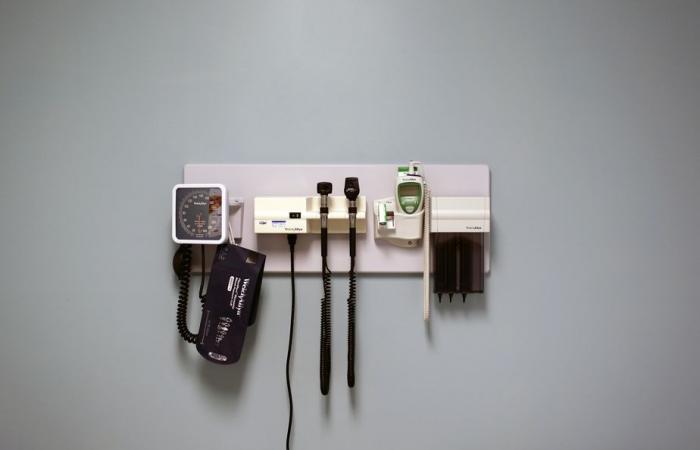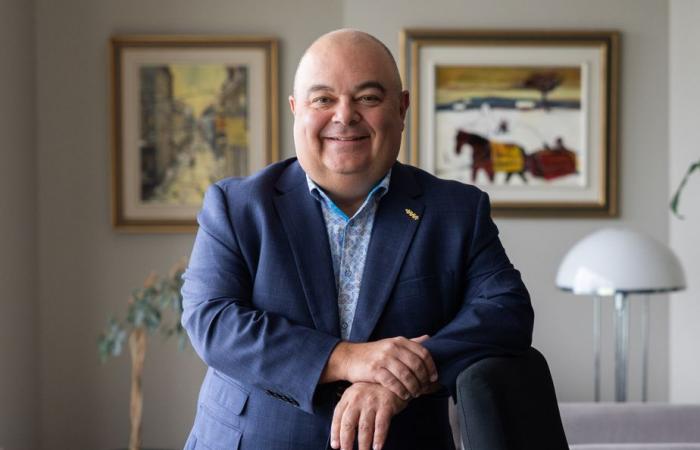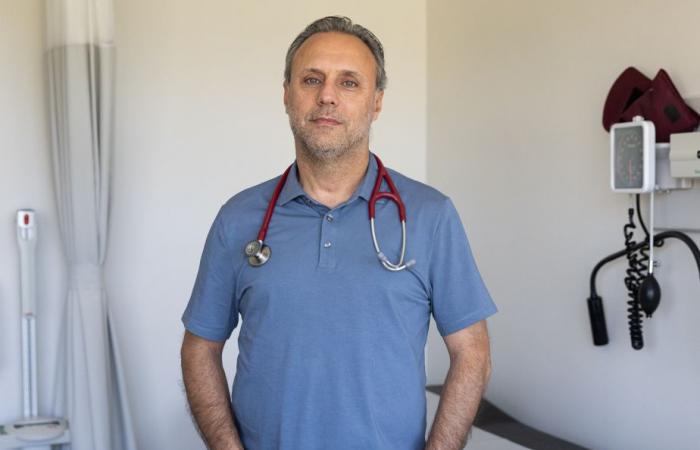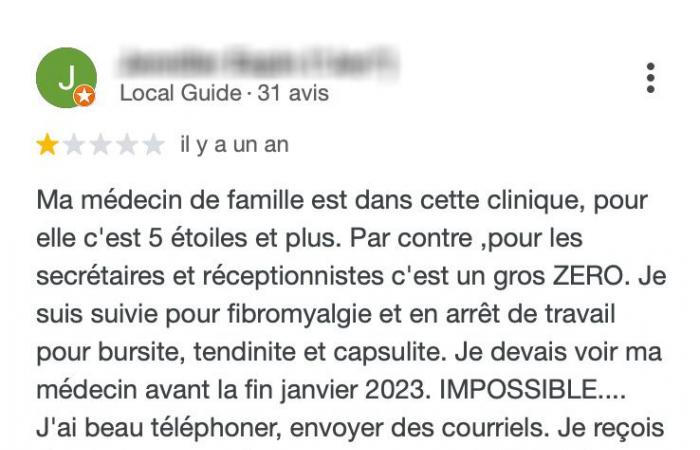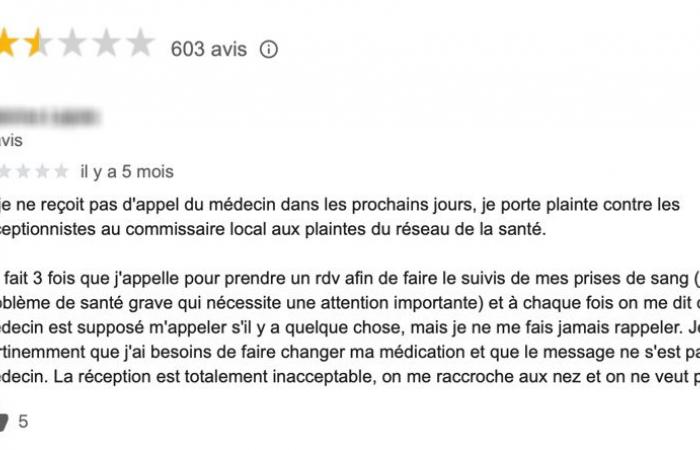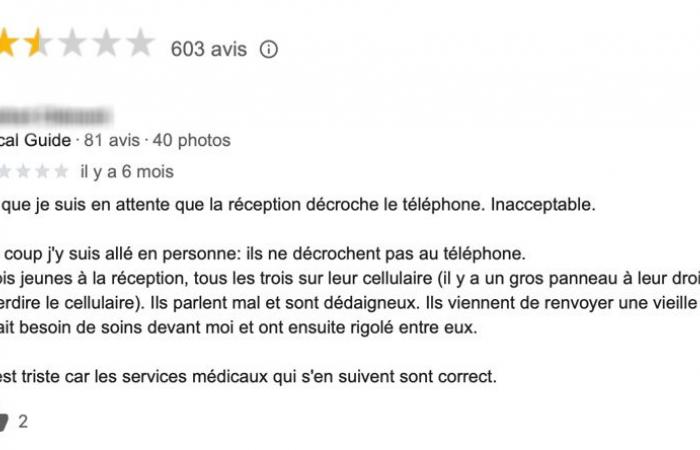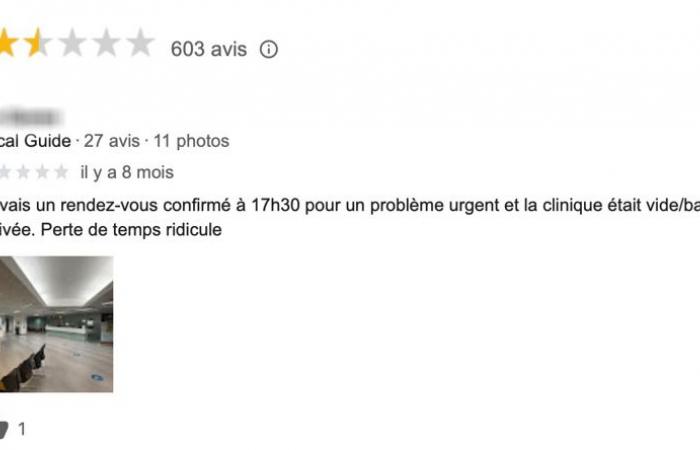The Dre Sylvia Baribeau still talks about it with shock: “I was doing walk-ins in Montreal West, when a nurse handed me a paper and said: “Open!” » The gynecological instrument that was there remained soiled with human tissue, after botched cleaning, says the family doctor. “It was used to take biopsies [dans l’utérus] and had not been brushed before being put in the autoclave! I said: “We’ll stop everything!” »
Published at 0:00
After this discovery, seven patients in the Forcemedic network had to undergo emergency screening in 2017, then 80 others in 2019-2020, even though its six family medicine groups (GMF) had not used reusable equipment for two years. , its former CEO, Ricardo Cordeiro, told us. “The use [d’instruments non stérilisés] can promote the transmission of infections, in particular hepatitis B, hepatitis C and HIV,” wrote the Montreal Regional Public Health Directorate (DRSP).
The former medical director of Forcemedic, Dr.re Sara Parniani alleged last year in Superior Court that this “major problem” had put her professional responsibility and her license “at stake”. And that Mr. Cordeiro would have introduced the sterilization of reusable instruments “without his knowledge”. Both then competed for control of their company by accusing each other of incompetence. But they finally sold it, resolved their differences and wrote to us separately that they had always maintained the quality of care.
“The screenings turned out to be negative for the 3 viruses [recherchés] », Affirms the DRSP, which cannot elaborate, since the epidemiological investigations are confidential.
Lack control
This episode is just one of the failures experienced by GMFs and clinics in the Montreal region in recent years, notably marked by closures without notice, the abandonment of medical files and cases of poorly trained staff, reveals our investigation.
Medical associations and most of the caregivers we interviewed believe that a booming phenomenon favors abuses: more and more front-line clinics where care is paid for by the RAMQ belong to companies that are not controlled. by doctors.
The shareholders of these companies and certain doctors instead assert that the presence of investors improves access to care.
For the College of Physicians, a problem remains. The organization does not have the power to force business people who own clinics to respect the standards that govern the practice of medicine. The Professional Code does not authorize it, he explained this fall to parliamentarians who are studying the modernization of this law (PL 67).
The absence of “rigorous monitoring and control mechanisms” constitutes “a significant threat to the protection of the public”, and the government must “rapidly address [à ce] weak link in the professional system,” argues the College in its brief. According to him, the problem “has only gotten worse” over the past 10 years, due in particular to “economic reality” and the “explosion in the supply of private health services”.
Doctors delegate a host of responsibilities to clinic owners, such as ensuring the confidentiality of records or maintaining instruments. These activities are governed by numerous professional and ethical rules, but some entrepreneurs ignore them, wrote to us the Dr Mauril Gaudreault, president of the College.
PHOTO MARCO CAMPANOZZI, LA PRESSE
The Dr Mauril Gaudreault, president of the College of Physicians
When some business-owned clinics closed, the cases were abandoned, with no doctor taking responsibility. We had to take legal action against third parties to gain access.
The Dr Mauril Gaudreault, president of the College of Physicians
Business Opportunities
The majority of Quebec’s 384 GMFs still belong to doctors, but several have tired of administering large structures or have retired in recent years. Companies from various sectors often buy out their clinics or create new ones.
They receive millions of dollars, since the Ministry of Health finances the operations of the GMF (premises, equipment, computerization, certain salaries) and the doctors pay them part of their fees.
The more patients a GMF treats, the more subsidies and office fees it receives. Some entrepreneurs therefore compete to form small empires.
Concerned, the Federation of General Practitioners of Quebec (FMOQ) wrote to the government in 2023 and 2024, so that it “requires that medical clinics must be majority owned by doctors”.
“The primary objective of promoters is to make profits, and not the good of patients! But no one seems to see or want to see what is happening,” says its president, Dr.r Marc-André Amyot, who considers the failings noted by its members, the College and The Press.
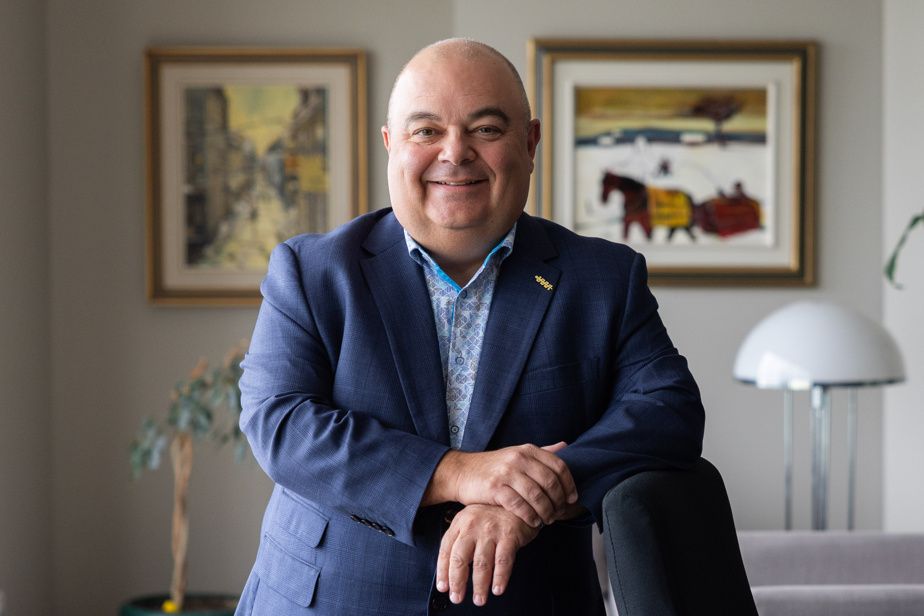
PHOTO MARTIN TREMBLAY, THE PRESS
The Dr Marc-André Amyot, president of the FMOQ
Doctors must be able to refuse inadequate equipment or poorly trained staff. Faced with a big chain, the family doctor is David against Goliath!
The Dr Marc-André Amyot, president of the FMOQ
Also worried, the Dr Samer Daher, who chairs the Association of General Practitioners of Montreal, surveyed his fellow clinic owners. This overview convinced him that “certain businessmen have weakened the provision of care to the detriment of patients” by engaging in “poaching”, which, according to him, causes a lot of instability.
“They tell young doctors: ‘come, we won’t force you to work evenings or weekends,’ and attract them with abnormally low practice fees, 15% to 20% rather than 30%. »
Clinics that lose doctors at their expense find themselves in peril, he says. They therefore have to reduce their own office costs, which causes a shortfall and forces them to scrape the bottom of their drawers.
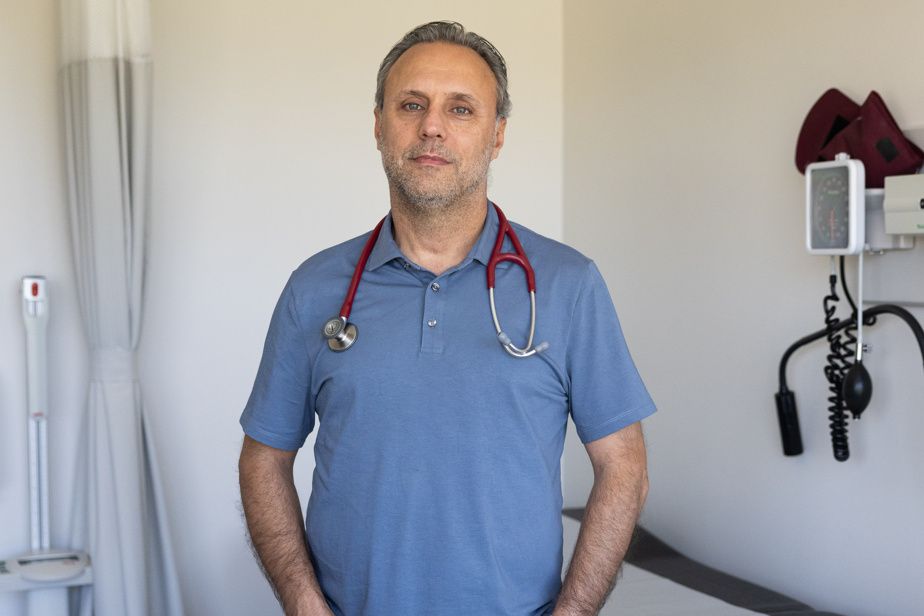
PHOTO MARTIN TREMBLAY, THE PRESS
The Dr Samer Daher chairs the Association of General Practitioners of Montreal.
“Even those who have their responsibilities at heart must align themselves to the bottom,” says the general practitioner, surprised that anyone can buy a clinic without holding any kind of license.
Several caregivers interviewed by The Press confirm his statements. “Underpaid young people scanned examination reports and classified them haphazardly, which could have had dramatic consequences,” relates, for example, a nurse who worked for several years in a GMF owned by investors. We cannot identify him because his employer prohibits him from speaking to the media.
On Google, dozens of ulcer patients write that clinics (very often owned by investors) do not answer the phone and do not call back, even if it is urgent. “We called more than 100 times in 2 days,” says one of them.
-
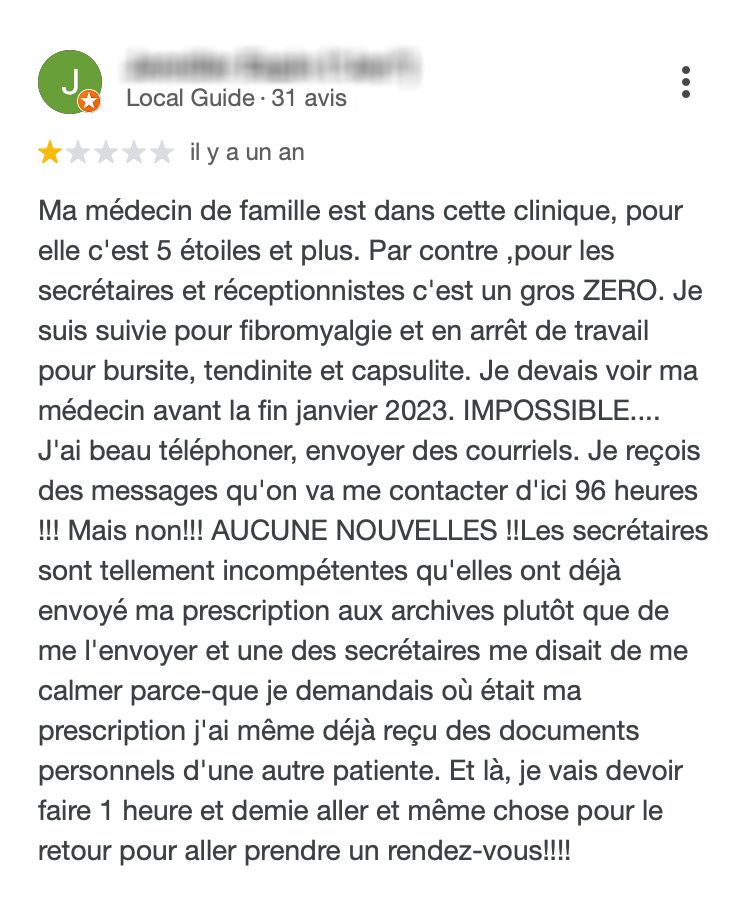
SCREENSHOT TAKEN FROM GOOGLE
Unfavorable review left by a patient of a clinic
-
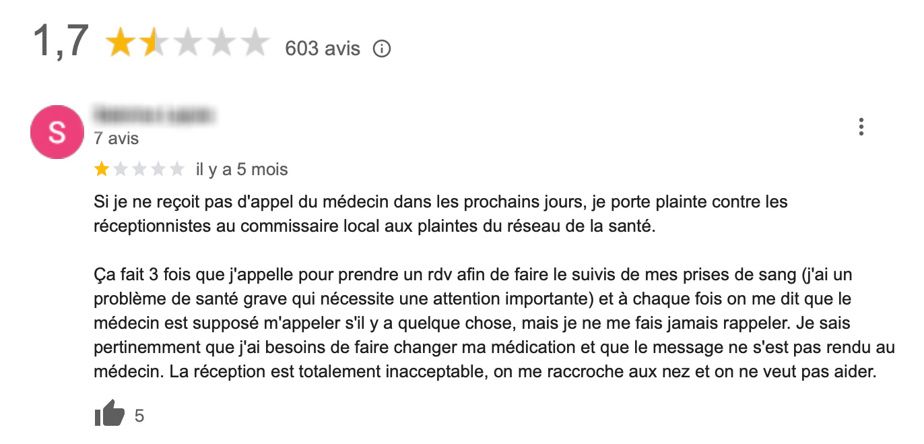
SCREENSHOT TAKEN FROM GOOGLE
Unfavorable review left by a patient of a clinic
-

SCREENSHOT TAKEN FROM GOOGLE
Unfavorable review left by a patient of a clinic
-
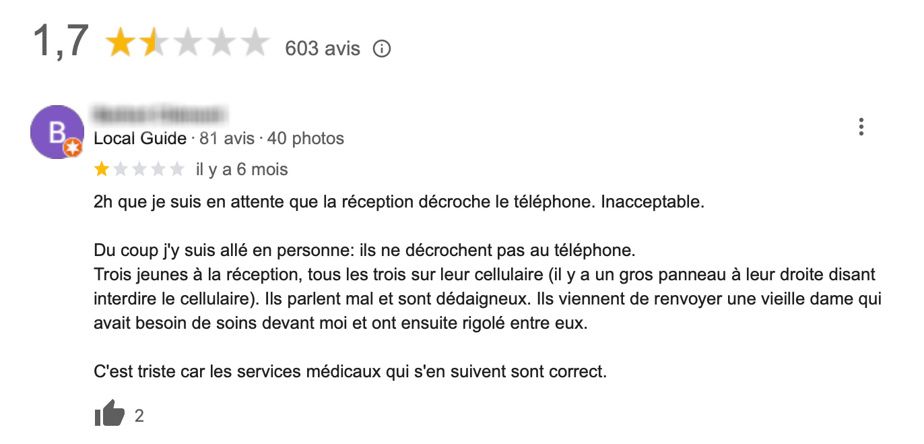
SCREENSHOT TAKEN FROM GOOGLE
Unfavorable review left by a patient of a clinic
-
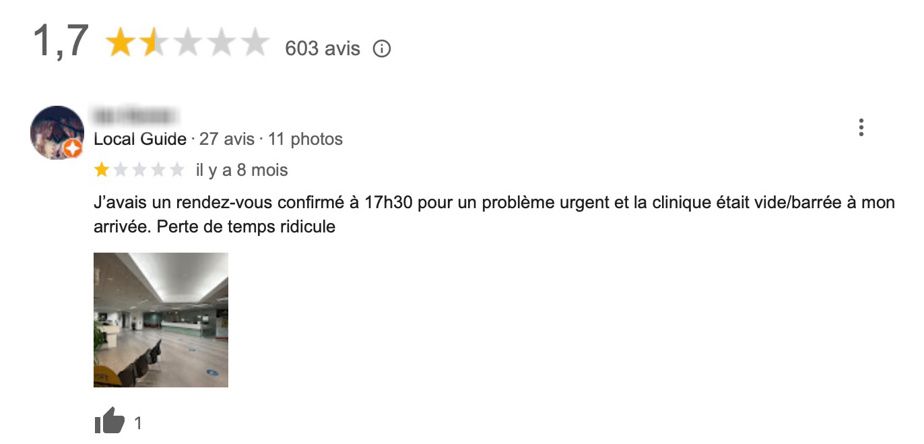
SCREENSHOT TAKEN FROM GOOGLE
Unfavorable review left by a patient of a clinic
1/5
The Dre Sylvia Baribeau experienced it at Forcemedic. “When they replaced our receptionists with a central one, it became hell! It didn’t even respond to the doctors anymore and the automated system indicated that I didn’t exist! »
Accelerate the pace
Another source of recurring complaints among patients: quick appointments. The Dre Baribeau reports having received consultations with patients who had just seen another doctor, without having been examined, although she believes that this should have been done. “Some had pneumonia! », exclaims the general practitioner.
The government then finances several consultations instead of one and becomes poorer, while the clinic cashes in, says the Dre Baribeau.
Some doctors undoubtedly carry out consultations on their own. But according to the Dre Isabelle Leblanc, who chairs the Médecins québécois pour le regime public movement and works in a university GMF, her former residents often confide to her that “promoters insist that they see many more patients than what they deem safe, because the company receives a percentage of their fees ».
When a network no longer pays for itself, its decline can be chaotic.
According to five former Forcemedic doctors and what the D.re Sara Parniani in her legal request, the electronic medical records of 50,000 patients were almost disconnected by an unpaid supplier in 2023.
A professional not authorized to speak to the media maintains that “in the end, we ran out of dressings and containers for dirty needles, the response to requests was always: ‘no, we don’t have money’.”
Occupational therapist Rémi Boulila, who bought the group’s clinics, believes that the one in Montreal West proved unrecoverable, despite his efforts. “When we arrived, most of the doctors had left. The site was outdated, half empty and the cleaning service was no longer available. for a while “, he told us, which caregivers corroborate.
In April, the Dre Sylvia Baribeau took over the reins of this GMF with two sisters. They face a mountain of administrative tasks, but the general practitioner would not go back: “I never want to be treated like a pawn again! »
Learn more
-
- 384
- Number of GMFs in summer 2024. This figure was 375 as of March 31, 2023 and 366 as of March 31, 2022.
Source: Ministry of Health and Social Services

